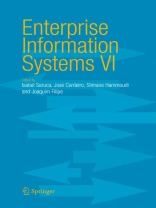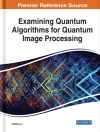This book contains the best papers of the Sixth International Conference on Enterprise Information Systems (ICEIS 2004), held in Porto (Portugal) and organized by INSTICC (Institute for Systems and Technologies of Information, Communication and Control) in collaboration with PORTUCALENSE UNIVERSITY, who hosted the event. Following the route started in 1999, ICEIS has become a major point of contact between research scientists, engineers and practitioners on the area of business applications of information systems. This conference has received an increased interest every year, from especially from the international academic community, and it is now one of the world largest conferences in its area. This year, five simultaneous tracks were held, covering different aspects related to enterprise computing, including: “Databases and Information Systems Integration”, “Artificial Intelligence and Decision Support Systems”, “Information Systems Analysis and Specification”, “Software Agents and Internet Computing” and “Human-Computer Interaction”. The sections of this book reflect the conference tracks.
Cuprins
Invited Papers.- Project Failures: Continuing Challenges for Sustainable Information Systems.- Large Scale Requirements Analysis as Heterogeneous Engineering.- Evolutionary Project Management: Multiple Performance, Quality and Cost Metrics for Early and Continuous Stakeholder Value Delivery.- Managing Complexity of Enterprise Information Systems.- Engaging Stakeholders in Defining Early Requirements.- Organizational Patterns.- Databases and Information Systems Integration.- Assessing Effort Prediction Models for Corrective Software Maintenance.- Organizational and Technological Critical Success Factors Behavior along the ERP Implementation Phases.- Acme-DB: An Adaptive Caching Mechanism Using Multiple Experts for Database Buffers.- Relational Sampling for Data Quality Auditing and Decision Support.- Towards Design Rationales of Software Confederations.- Memory Management for Large Scale Data Stream Recorders.- Artificial Intelligence and Decision Support Systems.- Comprehensible Credit-Scoring Knowledge Visualization Using Decision Tables and Diagrams.- Dynamic Multi-Agent Based Variety Formation and Steering in Mass Customization.- Multiple Organ Failure Diagnosis Using Adverse Events and Neural Networks.- Mining the Relationships in the form of the Predisposing Factors and Co-Incident Factors among Numerical Dynamic Attributes in Time Series Data Set by Using the Combination of Some Existing Techniques.- Information Access via Topic Hierarchies and Thematic Annotations from Document Collections.- New Energetic Selection Principle in Differential Evolution.- An Experience in Management of Imprecise Soil Databases by Means of Fuzzy Association Rules and Fuzzy Approximate Dependencies.- Information Systems Analysis and Specification.- Analysis and Re-Engineering of Web Services.- Balancing Stakeholder’s Preferences on Measuring Cots Component Functional Suitability.- A Polymorphic Context Frame to Support Scalability and Evolvability of Information System Development Processes.- Feature Matching in Model-Based Software Engineering.- Towards a Meta Model for Describing Communication.- Intrusion Detection Systems Using Adaptive Regression Spines.- A User-Centered Methodology to Generate Visual Modeling Environments.- Software Agents and Internet Computing.- Teambroker: Constraint Based Brokerage of Virtual Teams.- Semantic E-Learning Agents.- Seamless Communication and Access to Information for Mobile Users in a Wireless Environment.- Agent Programming Language with Incomplete Knowledge – Agentspeak(I).- Federated Mediators for Query Composite Answers.- A Wireless Application That Monitors ECG Signals On-Line: Architecture and Performance.- Human-Computer Interaction.- CABA2L a Bliss Predictive Composition Assistant for AAC Communication Software.- A Methodology for Interface Design for Older Adults.- A Contact Recommender System for a Mediated Social Media.- Emotion Synthesis in Virtual Environments.- Accessibility and Visually Impaired Users.- Personalised Resource Discovery Searching over Multiple Repository Types.












